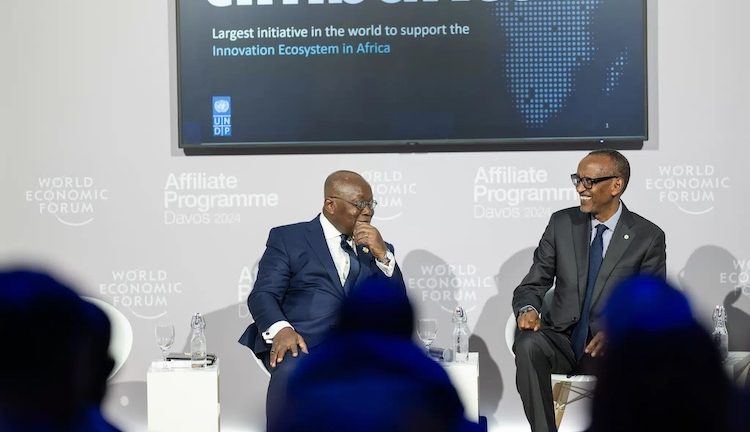By Damilola Banjo*
This article was originally published by Passblue.
LAGOS, Nigeria (IDN) — Venture capital funding is shrinking globally, but experts are optimistic that a new $1 billion investment fund created by the United Nations Development Program for the tech ecosystem in Africa could protect startups there from declining investments.
“The $1 billion Timbuktoo fund is a fantastic initiative by the UN and probably the largest startup fund in Africa,” said Richmond Ogigai, a founder of WallX Africa, a payment solution for African businesses in Nigeria. “I think this will also attract other investors, both local and international investors. Also, I believe this will be a catalyst to revive the funding ecosystem that has been bearish for a long while.”
The fund is named Timbuktoo, after the fabled cultural-crossroads city of Timbuktu in Mali. (The city is now nearly off-limits to outsiders because of insecurity.) The fund is projected to invest in 10,000 startups in the next decade, said Eleni Gabre-Madhin, UNDP Africa’s chief innovation officer. She is leading the initiative, which was launched at the World Economic Forum in Davos, Switzerland, recently. The initial $350 million pot will be domiciled in the Kigali International Financial Center, Rwanda.
“We are also targeting of that ten thousand, at least 1,000 become scale-ups,” Gabre-Madhin said at Davos. “Our vision is that a thousand startups will collectively have an impact on a hundred million livelihoods and generate $10 billion in value to the continent.”
Africa contributes only 0.2 per cent to the global startup value, she said, despite its huge young population of 1.3 billion people. This number is projected to double by 2050. A total of 1,361 unicorns — private startups with a collective valuation of $1 billion — operate in the world, but only seven are based in Africa. Six are financial-tech companies; Jumia is an e-commerce company. Four of the seven are Nigerian companies, including Jumia.
United States Secretary of State Antony Blinken happened to be in Nigeria last week on a four-country itinerary of parts of Africa. In Lagos, the country’s commercial capital, he met entrepreneurs, tweeting that the techmeisters are “unleashing their creative potential to solve big problems” and make a positive difference in the world.
431 million people live below the poverty line
While the continent may have the corner on the youngest population in the world, with the average age pegged at 25, it is also the poorest region, with about 431 million people living below the poverty line.
“Too often, Africa’s startups lack the funding to compete at a global level,” President Paul Kagame of Rwanda said at Davos. He announced a $3 million contributory fund toward the initiative. “We cannot accept that another generation of African young people do not have the tools to reach their full potential. With Timbuktoo’s $1 billion target, we can create more opportunities for Africa’s youth to put their talent and creativity to good use.”
Timbuktoo will create a buffer for Africa as global venture capital funding continues to dry up, said Benjamin Dada, who leads a tech-news platform in Lagos. High interest rates, an uncertain economic environment and “the fact that the access to capital that investors had at zero interest rates has changed” affect the lack of foreign-based investment in Nigeria and Africa as a whole. Experts who spoke with PassBlue worry that the fast-growing African startup industry will shrink without adequate funding for young entrepreneurs to build their businesses.
Timbuktoo is trying to solve this deficit by attracting more local investors as an alternative to foreign direct investment. The total value and volume of funding in Africa — a continent of 54 countries — is abysmally low compared with other major regions, except South America. That continent netted $1.6 billion global investments compared with the $2.9 billion that went to Africa during the first and second quarters of 2023.
“Historically, access has been one of the main challenges to funding,” Dada said. “Also, the pool of capital is not deep and only limited. So even when there is access, the investors might have disbursed their quota for a particular fund before the next startup gets to them. There is also the problem of management. We have seen startups shut down due to bad practices. That means that even when you manage to raise capital, you’re still not able to be efficient with that capital.”
89 per cent dependent on foreign capital
Africa is the only region in the world that is 89 per cent dependent on foreign capital, Gabre-Madhin of UNDP said. The investments are going to only four countries: Nigeria, Kenya, South Africa and Egypt. The Timbuktoo fund will target flourishing sectors within the ecosystem in selected hubs across Africa. Dada said this approach forces entrepreneurs to streamline their ideas and focus on sectors where financing is available as opposed to gambling with multiple pitches with the hope that one will stick. Timbuktoo will provide the financing to local venture capital firms that know the market better than outsiders, he added.
This method has been successful in shaping the tech ecosystem in Nigeria, Ogigai of WallX Africa said. “I would like to see a lot of local participation from investors as this also gives confidence to international investors,” he said.
*Damilola Banjo is a staff reporter for PassBlue. She has a master’s of science degree from the Columbia University Graduate School of Journalism and a B.A. in communications and language arts from the University of Ibadan, Nigeria. She has worked as a producer for NPR’s WAFE station in Charlotte, N.C.; for the BBC as an investigative journalist; and as a staff investigative reporter for Sahara Reporters Media. [INPS Japan/ IDN]
Original link: https://www.passblue.com/2024/01/29/undps-new-1-billion-fund-could-boost-africas-tech-startups-globally/
Photo: At the World Economic Forum in Davos, Switzerland, in January, Presidents Nana Akufo-Addo of Ghana, left, and Paul Kagame of Rwanda helped launch the United Nations Development Program’s investment fund directed at tech startups in Africa. Called Timbuktoo, it could cushion the bearish state of venture capital globally. WEF2024


